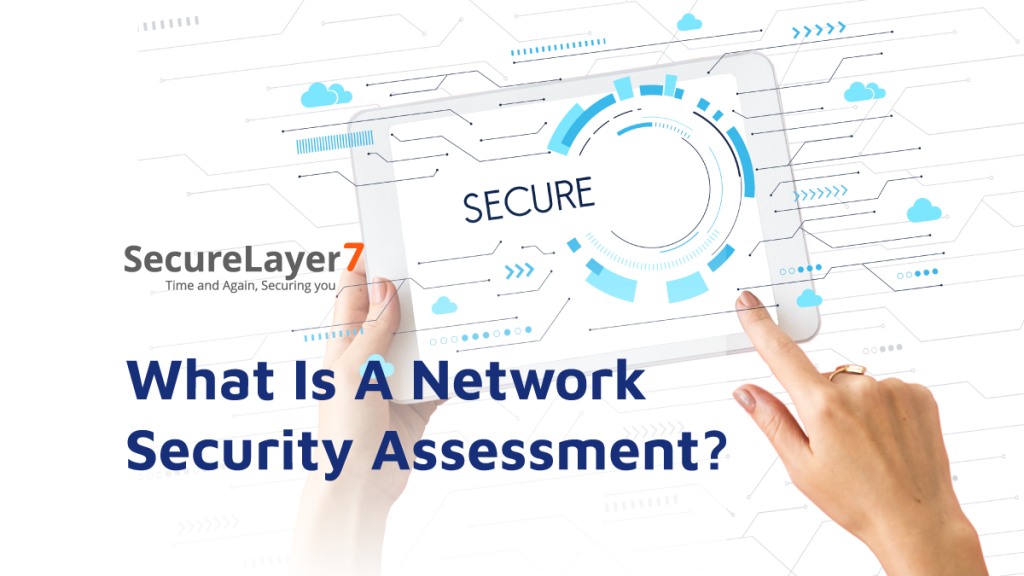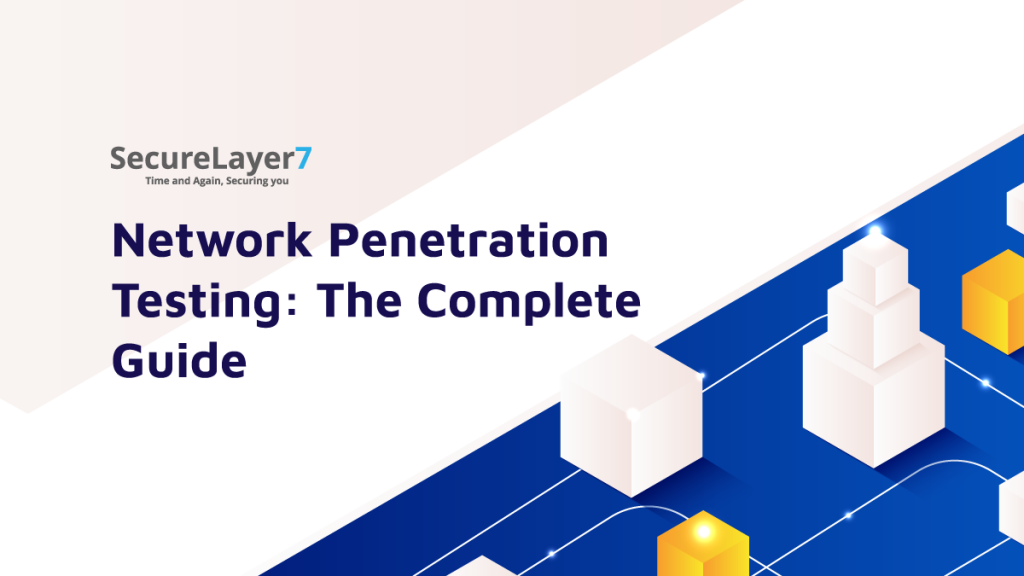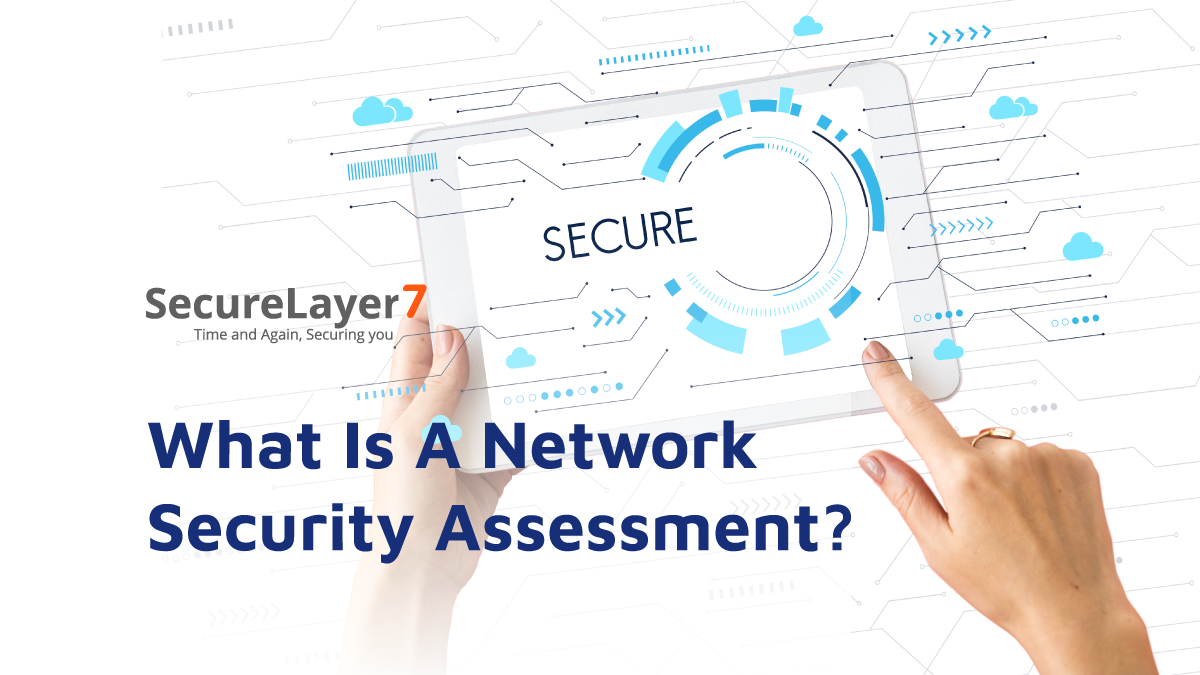
What Is A Network Security Assessment?
March 27, 2023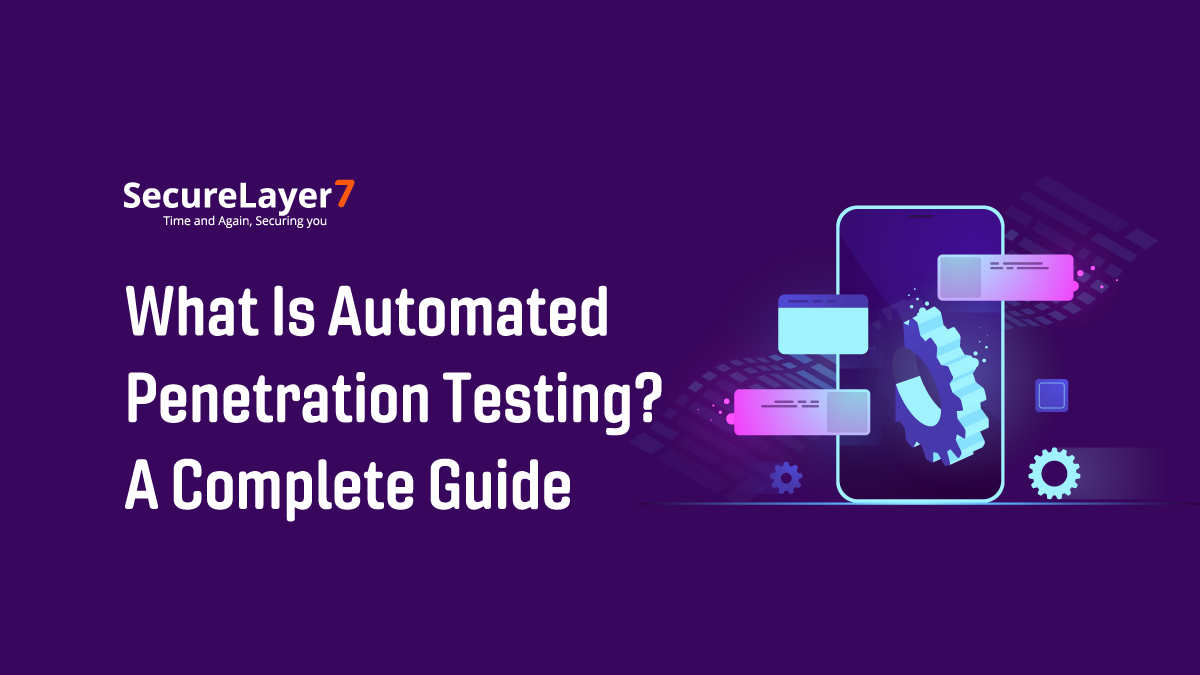
What Is Automated Penetration Testing? A Complete Guide
March 29, 2023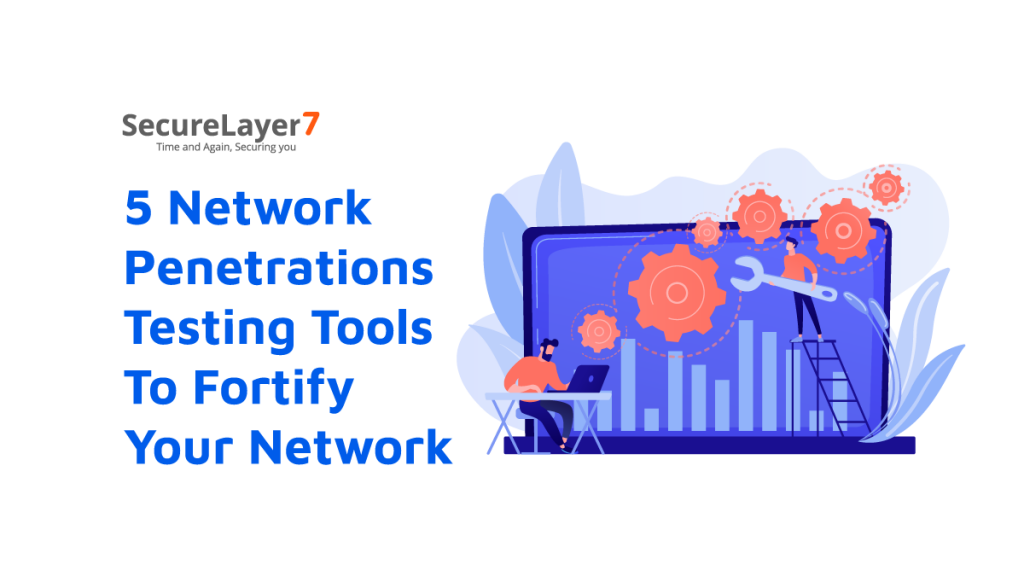
Network penetration testing tools are the most vital tools for securing your network. It is widely used by cybersecurity professionals and on the downside seldom by hackers who do not use these tools with productive intentions.
In this blog, we will discover the top 5 network penetration tools that have become an integral part network security testing ecosystem.
The Top 5 Network Penetration Testing Tools In 2023
Here are the top 5 penetration testing tools to pick up in 2023
- Acunetix
- Invicti
- Metasploit
- Burp Suite
- Zenmap
Picking a good network penetration testing tool
The network security testing market is loaded with so many tools nowadays that it has become difficult to opt for the most reliable one. Every organization has its tailored requirements and looks for the one tool that fits best per its requirements.
Let us understand some of the major factors to consider when choosing a good network penetration testing tool.
Here are 5 important things to consider when choosing a network security tool.
Reputation
Look for a tool that has a strong reputation in the industry. You can check reviews and ratings on various websites to gauge the tool’s popularity and reliability.
Features

A good network penetration testing tool should have a comprehensive set of features to help you identify vulnerabilities in your network. Look for features such as port scanning, vulnerability scanning, password cracking, and network mapping.
Custom Capabilities
The tool should allow you to customize and configure various aspects of the test, such as target IP ranges, protocols, and ports. This can help you tailor the test to your specific needs and ensure that you’re testing the areas that are most relevant to your network.
Compliance
If you need to comply with specific regulations, such as PCI-DSS, HIPAA, or GDPR, look for a tool that can help you meet those compliance requirements. The tool should have pre-built compliance templates and reports that can help you demonstrate your compliance posture.
Pricing

The cost of the tool is also an important factor to consider. Look for a tool that fits within your budget and provides good value for money. Some tools may offer a free trial or a limited version for free, so you can test the tool before committing to a purchase.
5 Network Pentest Tools You Can Try
We have listed down the five best tools among others that you can try. These are listed keeping all the above-mentioned factors in consideration.
Acunetix
Acunetix is a web vulnerability scanner that can help you identify and prioritize vulnerabilities in your web applications. It is a commercial tool developed by Acunetix Ltd and is available for Windows and Linux operating systems. Here’s some more information about Acunetix:
Features:
Acunetix is known for its comprehensive vulnerability detection capabilities, which include:
- Web vulnerability scanning: Acunetix can detect vulnerabilities such as SQL injection, cross-site scripting (XSS), and file inclusion.
- Authentication testing: Acunetix can test the authentication mechanisms of your web application, including username/password authentication and single sign-on (SSO).
- Customization: Acunetix allows you to customize various aspects of the test, including target URLs, user agents, and HTTP headers.
- Integration with other tools: Acunetix can be integrated with other tools such as Jenkins, JIRA, and GitHub to help streamline your security testing workflow.
- Compliance reporting: The tool can generate compliance reports for various regulations, including PCI DSS, HIPAA, and ISO 27001.
- Vulnerability management: Acunetix provides a vulnerability management feature that allows you to track and manage the vulnerabilities detected by the tool.
In addition to these features, Acunetix also provides an interactive scanning feature that allows you to manually test specific areas of your web application while the scan is running.
This can help you identify vulnerabilities that may not be detected by the automated scanning engine.
Pros:
- Comprehensive vulnerability detection: Acunetix can detect a wide range of vulnerabilities, including SQL injection, cross-site scripting (XSS), and file inclusion vulnerabilities.
- Automated scanning: Acunetix uses an advanced scanning engine that can automatically crawl and test your web applications for vulnerabilities.
- Customization: Acunetix allows you to customize various aspects of the test, including target URLs, user agents, and HTTP headers.
- Integration with other tools: Acunetix can be integrated with other tools such as Jenkins, JIRA, and GitHub, to help streamline your security testing workflow.
- Compliance reporting: The tool can generate compliance reports for various regulations, including PCI DSS, HIPAA, and ISO 27001.
Cons:
- Cost: Acunetix is a commercial tool, and its pricing can vary depending on the number of licenses and the level of support required.
- Limited free version: The free version of Acunetix has limited features and can only scan a limited number of web pages.
- False positives: Some users have reported that Acunetix can generate false positives, which can be time-consuming to investigate.
Acunetix is widely used by organizations to identify and prioritize vulnerabilities in their web applications.
However, it is important to note that no tool can guarantee 100% security, and it is important to use a combination of tools and manual testing to ensure the security of your web applications.
Invicti
Invicti Security is a company that provides web application security solutions, and one of its main products is the Netsparker web application security scanner. Here are some key features and benefits of the Netsparker tool:
- Proof-Based Scanning: Netsparker uses a unique Proof-Based Scanning technology to detect vulnerabilities accurately. This approach combines a series of security checks and exploits attempts to validate the presence of a vulnerability before reporting it, reducing the number of false positives and false negatives.
- Comprehensive Vulnerability Detection: Netsparker can detect a wide range of vulnerabilities, including SQL injection, cross-site scripting (XSS), and file inclusion vulnerabilities.
- Automated Scanning: Netsparker uses an advanced scanning engine that can automatically crawl and test your web applications for vulnerabilities, reducing the amount of manual work needed.
- Integration with Other Tools: Netsparker can be integrated with other tools such as Jenkins, JIRA, and GitHub, to help streamline your security testing workflow.
- User-Friendly Interface: Netsparker provides a user-friendly interface that can help you manage and prioritize the vulnerabilities detected by the tool.
- Speed and Accuracy: Netsparker is known for its speed and accuracy, as it can scan complex web applications quickly and identify vulnerabilities with a low rate of false positives.
- Compliance Reporting: Netsparker can generate compliance reports for various regulations, including PCI DSS, HIPAA, and ISO 27001, helping you comply with these regulations and protect your web applications from cyber threats.
Invicti Security also offers a range of services, including web application security testing, vulnerability management, and compliance reporting, to help you identify and remediate vulnerabilities in your web applications.
The company’s tools and services are designed to help you comply with regulations, protect your web applications, and streamline your security testing workflow.
Metasploit
Metasploit is an open-source framework for developing, testing, and executing exploit code against vulnerable systems.
It is designed to help security professionals identify and exploit vulnerabilities in target systems and assess the overall security posture of an organization.
Here are some key features and benefits of Metasploit:
- Exploit Development: Metasploit provides a platform for developing and testing new exploits against known vulnerabilities. This allows security professionals to stay ahead of attackers and proactively identify and remediate vulnerabilities before they can be exploited.
- Penetration Testing: Metasploit can be used as a tool for penetration testing to simulate attacks against a target system and identify vulnerabilities that could be exploited by attackers.
- Post-Exploitation: Metasploit also provides a suite of tools for post-exploitation activities, such as gathering information about the target system, maintaining access to the system, and pivoting to other systems in the network.
- Payloads: Metasploit provides a variety of payloads that can be used to deliver and execute code on the target system, including reverse shells, meterpreter payloads, and VNC payloads.
- Integration: Metasploit can be integrated with other security tools, such as vulnerability scanners and network mapping tools, to provide a comprehensive view of an organization’s security posture.
- Community Support: Metasploit has a large and active community of users and developers, who contribute new exploits and modules, as well as provide support and guidance to new users.
- Free and Open-Source: Metasploit is a free and open-source tool, which means that it is accessible to anyone and can be modified and customized to fit the specific needs of an organization.
Overall, Metasploit is a powerful tool that can help security professionals identify and exploit vulnerabilities in target systems, as well as assess the overall security posture of an organization.
Its wide range of features and community support make it a popular choice for penetration testing and vulnerability assessment.
Burp Suite
Burp Suite is a web application security testing tool developed by PortSwigger. It is a popular choice for performing security testing and vulnerability scanning on web applications.
Here are some key features and benefits of Burp Suite:
- Intercepting Proxy: Burp Suite includes an intercepting proxy, which allows users to inspect and modify the HTTP/HTTPS traffic between their browser and the target web application. This can be useful for identifying vulnerabilities and testing the security of the web application.
- Scanner: Burp Suite also includes an automated scanner, which can identify common vulnerabilities such as SQL injection, cross-site scripting (XSS), and file inclusion vulnerabilities.
- Repeater: Burp Suite includes a repeater tool, which allows users to repeat and modify requests sent to the target web application. This can be useful for testing the application’s response to various input values and identifying vulnerabilities.
- Intruder: Burp Suite includes an intruder tool, which can be used to perform brute force attacks against the target web application. This can be useful for testing the strength of passwords or other authentication mechanisms.
- Sequencer: Burp Suite includes a sequencer tool, which can be used to analyze the randomness and entropy of tokens or session IDs generated by the target web application. This can be useful for identifying vulnerabilities related to session management.
- Collaborator: Burp Suite includes a collaborator feature, which allows users to perform testing that involves interactions between multiple systems. This can be useful for testing the security of web applications that interact with external systems, such as APIs or databases.
- Extensibility: Burp Suite is highly extensible and supports the development of custom plugins and scripts. This allows users to customize the tool to fit their specific needs and automate repetitive tasks.
Overall, Burp Suite is a powerful tool for web application security testing and vulnerability scanning. Its wide range of features and extensibility make it a popular choice for security professionals and penetration testers.
Zenmap
Zenmap is a graphical user interface (GUI) for Nmap, a network exploration and security auditing tool.
Nmap is a command-line tool that allows users to scan networks and hosts for open ports, vulnerabilities, and other security-related information.
Zenmap provides a GUI that makes it easier for users to interact with Nmap and interpret the results of their scans.
Here are some key features and benefits of Zenmap:
- Nmap Integration: Zenmap is built on top of Nmap, so it includes all of the features and capabilities of Nmap. This allows users to perform network exploration and security auditing tasks using a graphical interface.
- Port Scanning: Zenmap includes a port scanning feature, which allows users to scan for open ports on a target system or network. This can be useful for identifying vulnerabilities and potential attack vectors.
- Host Discovery: Zenmap includes a host discovery feature, which allows users to identify hosts on a target network. This can be useful for mapping out the network topology and identifying potential attack surfaces.
- OS Detection: Zenmap includes an operating system (OS) detection feature, which can be used to identify the operating system running on a target system. This can be useful for identifying vulnerabilities and selecting appropriate exploit code.
- Scripting: Zenmap includes a scripting feature, which allows users to run custom scripts to automate scanning and testing tasks. This can be useful for automating repetitive tasks and integrating Zenmap with other security tools.
- Visualization: Zenmap includes several visualization options, including a topology view and a heatmap view. These can be useful for visualizing network topology and identifying potential attack surfaces.
- Customization: Zenmap is highly customizable, with options to adjust the scan speed, configure scan parameters, and customize the output format. This allows users to fine-tune their scans and get more targeted results.
Overall, Zenmap is a powerful tool for network exploration and security auditing. Its graphical interface and integration with Nmap make it easy for users to perform scans and interpret the results, while its customization and scripting options make it a flexible and versatile tool for security professionals.
Make Your Network Vulnerability-Proof

Automated pen-testing tools can be useful for identifying common vulnerabilities, but they are not capable of detecting all vulnerabilities that may exist in a network or application.
These tools are often limited by their predefined tests and lack the ability to think outside the box like human pen-testers can.
This is where manual pen-testing by seasoned experts comes in. Experienced human pen-testers have the ability to identify vulnerabilities that automated tools may miss, because they can apply their expertise to creatively probe and exploit vulnerabilities in ways that automated tools can’t.
Moreover, human pen-testers have the ability to think like a hacker, understand the motivations of an attacker, and identify vulnerabilities that are unique to a specific environment.
At SecureLayerl 7 (SL7), we believe that a combination of automated and manual pen-testing is the best approach to achieve a vulnerability-proof network.
Our seasoned experts use a combination of automated and manual testing techniques to thoroughly assess your network and identify any vulnerabilities that may exist.
Our team includes experienced security experts who are passionate about uncovering vulnerabilities and helping organizations secure their networks. We provide comprehensive penetration testing services, including web application testing, network testing, and wireless testing.
At SL7, we go beyond just identifying vulnerabilities. We work with our clients to develop a plan of action to address any vulnerabilities that we find, helping them to prioritize and remediate the vulnerabilities based on their potential impact and severity.
In conclusion, while automated pen-testing tools can be a helpful starting point, manual pen-testing by seasoned experts is always the best approach to ensure that your network is truly vulnerability-proof.
At SL7, we provide a comprehensive and customized approach to vulnerability testing and remediation, helping our clients to achieve the highest levels of security and peace of mind.
